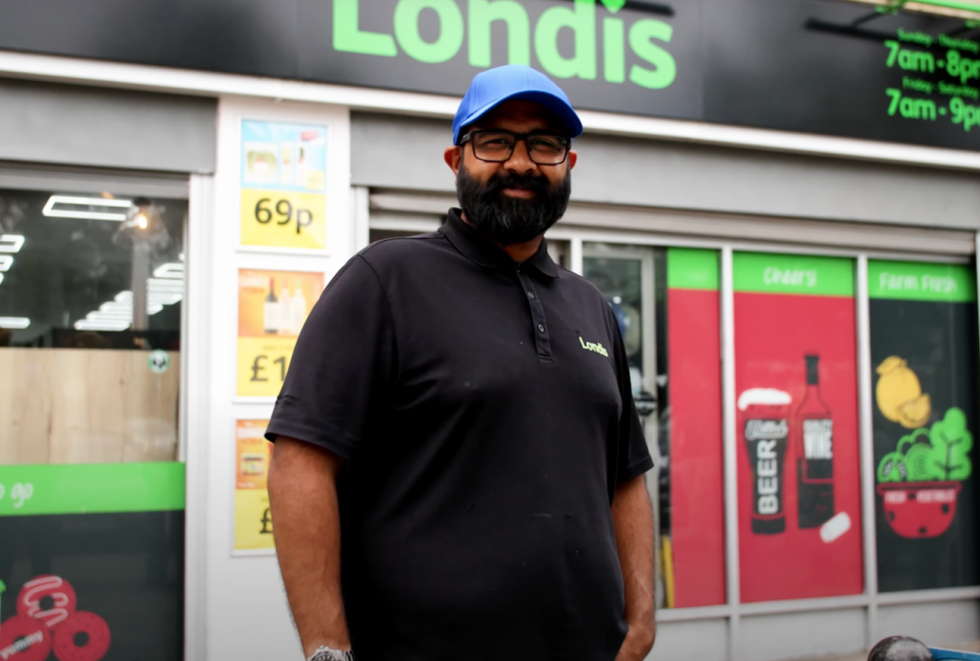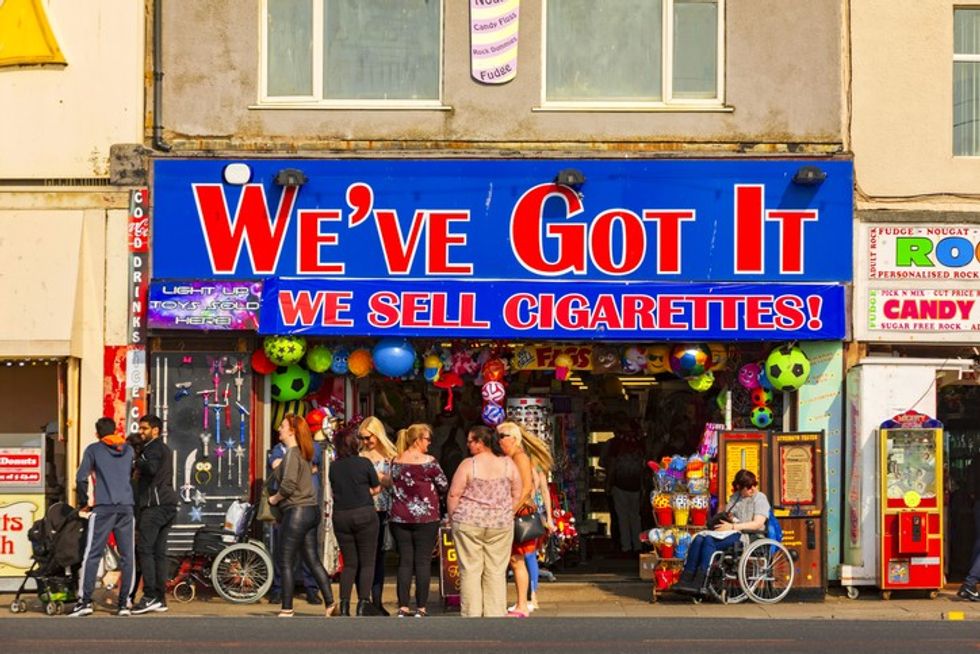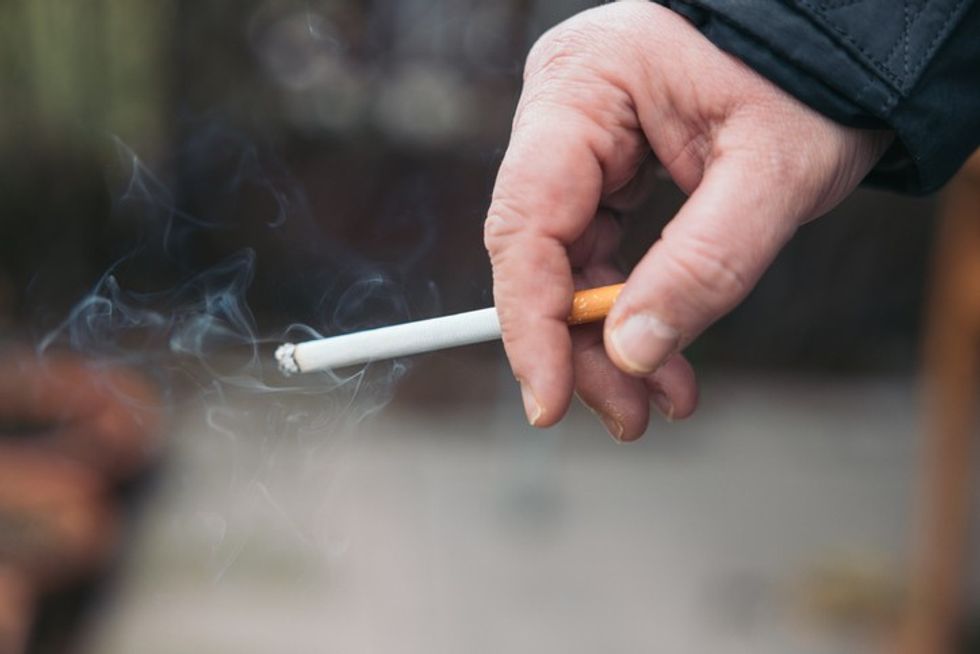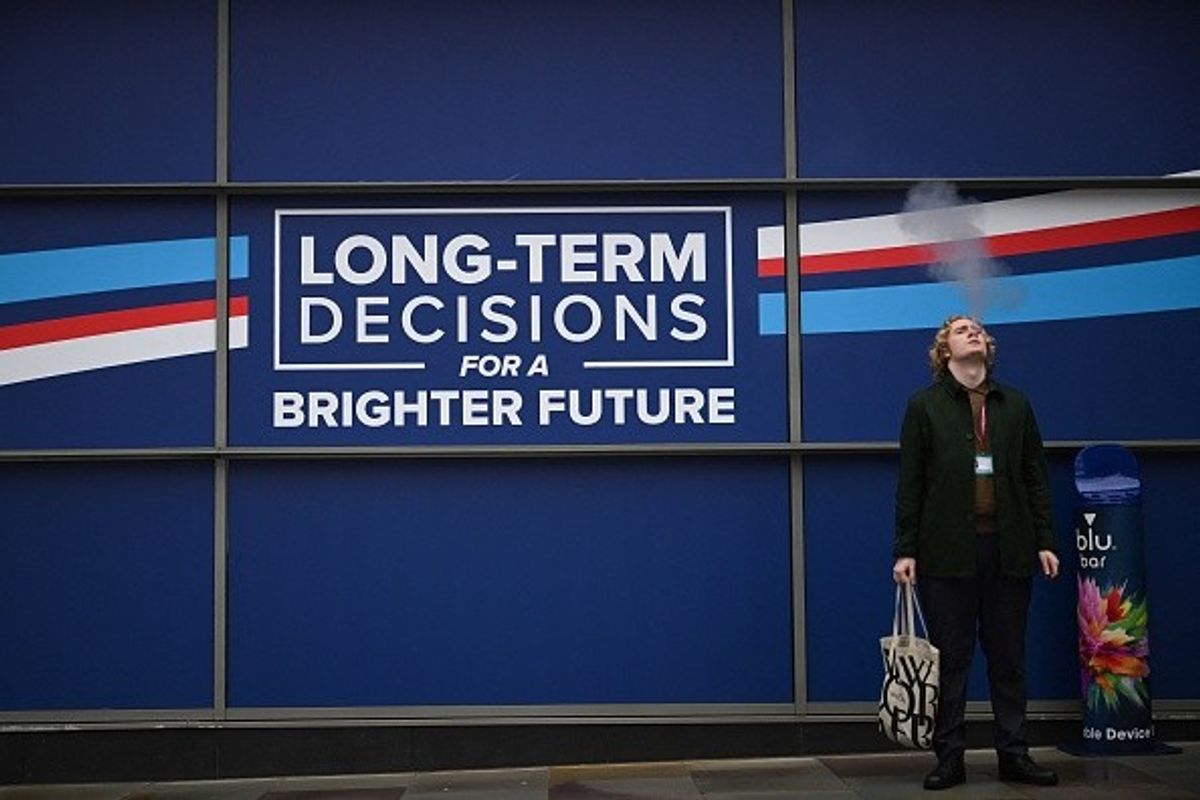Tobacco and Vape Bill is “highly confusing, unenforceable and unfair”, feel independent retailers who are calling on the government to take better and uncomplicated ways forward like simply raising the legal buying age and licensing of tobacco-selling shops.
Most independent retailers feel Tobacco and Vapes Bill, if it comes into effect, will have profound consequences and long-term deep impact on businesses as the stores will be exposed to confusing legal hassles as well as public anger.
Under current law, it is illegal for anyone under the age of 18 to buy tobacco products, but under the new Tobacco and Vapes Bill, children who are turning 15 this year, or anyone younger, would never be able to legally buy tobacco as the bill would make it an offence anywhere in the UK to sell tobacco products to anyone born on or after Jan 1 2009.
Backers of the legislation, including Prime Minister Rishi Sunak, say the aim is to create the UK's "first smoke-free generation."
The Smokefree Generation policy will come into force in 2027 when current 15-year-olds turn 18. In other words, post 2027, the age of sale will have to be raised by one year each year to prevent future generations from ever taking up smoking.
Superficially, the bill sounds like a perfect plan, but it has confusing layers and is expected to become a huge challenge for local stores with limited means, a major share of whose footfall and sales come from this category.
Unenforceable
Independent retailers are clueless at the moment at how they are going to enforce this regulation (if they have to), thanks to its sheer confusing and constantly-shifting timelines.
Owner of BB Nevison Superstore and Post Office in Pontefract, retailer Bobby Singh, feels that the legislation is “not practical and is totally unfair”.
“I personally do not smoke and feel education is the key to health awareness,” he told Asian Trader.
Scotland-based retailer Girish Jeeva who runs two stores around Glasgow, said, “I am not sure how the system will be placed and how difficult it will be when it comes to selling tobacco products. It seems unfair and very complicated.”
Retailer Nishi Patel, owner of Dartford’s Londis Bexley Park store, said, “I am a third generation shopkeeper. We always had tobacco products in the store. It's like cornerstone of a corner shop.
“Honestly, at the moment, we don't really know how we're going to implement this new law. I am not sure if the government is going to support us or give us grants for any age-recognition software.
“A lot of retailers are not happy with this bill because it is complicated and does not help us in any way at all.

“I am young so I will eventually work it out and get my staff trained to allow us to be able to enforce it. But I know a lot of other elderly shopkeepers who are saying that they will be forced to sell their businesses because it is too much legislation complexity for them to handle,” he told Asian Trader.
The bill will see that post-2027, every year, the legal minimum age of buying tobacco will be raised by one year, implying a few years down the line, a retailer and his staff will be held responsible if he is not able to prohibit sales to 36-year-olds while granting the same to 37-year-olds, thus creating a breeding ground for conflict with customers.
Stores are already reeling under record crime rates and abuse levels, as reflected by wider industry reports. The 2024 Crime Report by Association of Convenience Stores (ACS), released in early March revealed that an overwhelming majority (87 per cent) of people working in convenience stores have faced verbal abuse over the last year with "enforcing the law on age restricted sales” as top triggers for abuse.
The proposed legislation of generational smoking ban will further require retailers to decline sales to otherwise some fully-grown adults (but who can buy alcohol!), thus creating conflicting situations.
Retailer Eugene Diamond, owner of Diamond’s in Ballymena, said, “I asked a youngster to behave in the shop yesterday afternoon he’d been lifting and throwing products. His language and thoughts about me in reply was unbelievable. I can’t imagine what his reaction will be when he is 20 and refused cigarettes. I see that as a big problem.”
Patel too expects steep rise in cases of conflict and abuse from shoppers.
He said, “We are going to probably have increased problems in the shop from antisocial behavior. There is a cliché too that we talked about in Parliament too that someone could be born on the last month of December 2008 and his friend is just a month younger as he is born in January 2009. In this case, former would be able to buy tobacco while his friend would not!
“We are definitely going to have ugly issues in store as we are the ones who would be facing the shoppers and denying them sales, thus facing their rage and not the government,” he told Asian Trader.
Black market and loophole
Sadly, illegal trade of cigarettes and tobacco products is not new in the country. The trade, its logistics and supply chain exist and is flourishing already, as reflected by regular media and councils’ reports. Such a ban will only further boost underground trade.
Association of Convenience Stores chief James Lowman also stated that rogue sellers, who are supplying dodgy products to anyone who wants them, are operating without fear of reproach from Trading Standards teams that are already stretched beyond their limits.
“What we need is a coherent strategy focused on enforcing the rules that we already have and providing enforcement teams with enough resources to be able to do their jobs properly. New regulations that only affect responsible retailers will do nothing to deter the criminals that are importing and selling illicit products,” he said.
Retailer Patel feels the new legislation is more like a self-sabotage.
He said, “The government is going to lose out on revenue that tobacco makes. However, the market will be pushed into the black market more than it ever has been and the government is not going to get any revenue from there.
“Since tobacco sales will go down every passing year, money generated from tobacco will also go down. It looks like the government is putting themselves in a really big hole. The illicit trade is going to go up, which means they're not getting the taxes from it.”

What about the retailers buying tobacco from wholesalers for their stores? What rules will apply to them?
Sometime in future, let’s say in 2040, can a retailer (born after 2009) buy cigarettes and tobacco to stock in his store for his client base (pre-existing smokers born before 2009) or will the wholesaler be criminalised in this scenario?
Federation of Wholesale Distributors (FWD) is seeking clarity from the government and is yet to hear on this matter.
James Bielby, Chief Executive of FWD, said, “There must be an exemption to allow retailers to purchase tobacco from their wholesalers, whatever their age. There is a precedent for a wholesale exemption on displays and packaging – both of which are permitted in wholesale depots. These successes on tobacco policy, won by FWD, need to be replicated in the legislation.”
The wholesale body is also concerned over potential increase in the illicit trade.
“This policy must not lead to an increase in the illicit market controlled by organised crime gangs, hitting our members’ legitimate sales, tax revenues, and driving unregulated youth access to tobacco,” he added.
Better ways forward
Anti-smoking rules in the UK are among Europe’s strictest, with only Sweden having tougher regulations. The country already has the continent’s second-lowest smoking rates owing to some of the toughest laws and highest taxes on cigarettes in Europe and it has been slowly winning the war over smoking organically with the correct shift in mindset.
Based on APS data, the proportion of smokers in the UK in 2022 was 12.9 per cent, or 6.4 million people. This is a decrease from 2021 (13.3 per cent) and a considerable decrease in current smokers compared with 2011 (20.2 per cent). Comparing with peers, in France and Germany, smoking rate is 33.4 per cent and 22 per cent, while in Bulgaria, it is 39 per cent.
Demand for cigarettes fell by 54.3 per cent between 2010 from 38.3 packs/capita and 2022 to 17 packs/capita, according to analysis Smokefree World based on annual Population Survey data from the Office for National Statistics.
So, the question arises is do we even need a ban of such complexity and scale?
Retailer Patel feels that Sunak is seemingly only focused to be “remembered for bringing in generational smoking ban and thus saving future of the UK from cigarettes”.

“Truth is some people are still going to smoke; there is no way that a whole generation cannot be smoking. He (Sunak) is not being practical. And as a human, we don't make choices for people who are old enough to make their own decisions. This generational smoking ban is nothing but just another red tape that we're going to deal with,” the retailer said.
New Zealand, whose policy reportedly inspired Sunak to introduce similar smoking restrictions in the UK, has scrapped its landmark smoking in November last year, even before it fully came into effect. Scrapping the plan, New Zealand Prime Minister Christopher Luxon stated that the ban would have created "an opportunity for a black market to emerge, which would be largely untaxed.
Many retailers also believe that the government does not have the required funding or resources to police a generational ban of such a scale.
Retailers are calling on the government to consider better ways forward like increasing the legal age and licensing the tobacco shops.
Patel added, “Why don't they move the age of smoking to 21? And why don't they license every tobacco shop? That way, they cans still generate some money as well as some control on the market and a check on underage sales. Instead of doing a complete blanket ban, the government is bringing this generational thing which is so confusing.
“Training standards are already under massive budgetary crisis, they don't have enough money nor people on the floor to check each shop. Whereas if they license tobacco-selling shops, they will have some funds to go into the Trading Standards.”
The idea that one should not smoke, or smoking is injurious, should be inculcated at home, school and in society and not from a neighborhood shop owner. It seems like government, authorities, charities, schools and even parents are somewhere failing to bring awareness in young people and are trying to pass the buck on stores through this confusing law, disproportionately criminalising them in the process.
Clearly, the onus of making the UK “smoke-free” seems to be unfairly falling entirely and solely on the shoulders of retailers!


